The Carrie Chapman Catt Center for Women and Politics hosted three events in a busy October – the Hard Won Not Done closing event, the Iowa State Conference on Civility and Deliberative Democracy, and the Manatt-Phelps Lecture in Political Science.
On Oct. 4, the center hosted the closing event of the Hard Won, Not Done 19th Amendment statewide centennial commemoration. Keynote speaker Marjorie Spruill, author and distinguished professor emerita of history from the University of South Carolina, presented research from her book “Divided We Stand.”
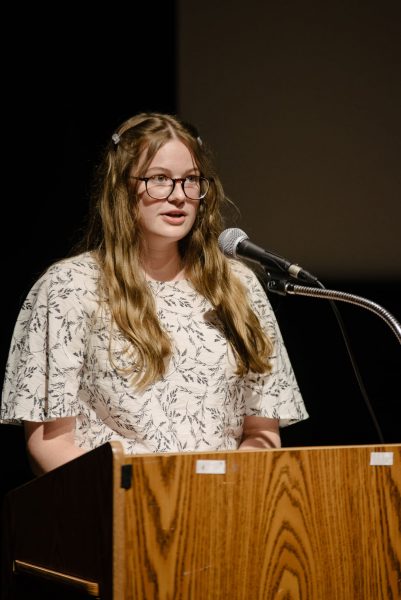
Spruill was introduced by Isabelle Kaiser, a senior in history and anthropology and the center’s research intern on the Archives of Women’s Political Communication.
In her presentation, Spruill discussed how the polarized political climate in the United States today had its roots in the changes in the political culture in the 1970s during the battle over women’s rights and the ERA, as women across the political spectrum became more politically active.
“As women stood up in the 1970s to demand more political power and attention to our concerns, we were extraordinarily divided,” Spruill said.
In the early 1970s, the women’s rights movement in the U.S. had strong support from both parties, but in 1977, federally funded women’s rights conferences became battlegrounds between feminists and an increasingly organized anti-ERA movement.
“[The conferences] had huge consequences. They were not only massively important for understanding feminism and anti-feminism in the 1970s, but were watershed events – yes, I said watershed events – in U.S. political history and essential for understanding major changes in the two major political parties and the origin of the political culture we now inhabit.”
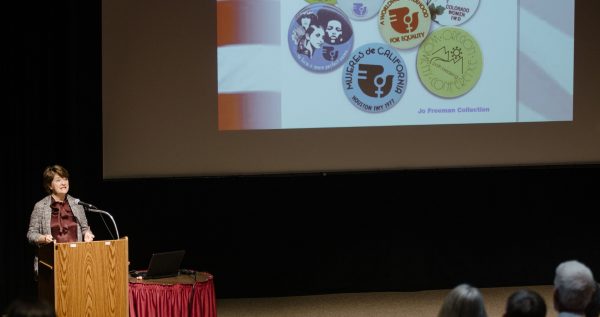
On display at the event was replica of the suffrage wagon first used in the late 19th century by abolitionist and women’s rights activist Lucy Stone and later by other suffragists. The wagon is one of two commissioned by the 19th Amendment Centennial Commemoration Committee. Now that the centennial commemoration events have ended, one wagon will be housed at the Carrie Lane Chapman Catt Girlhood Home near Charles City and the other at Yesterday’s Memories in Sanborn, Iowa.
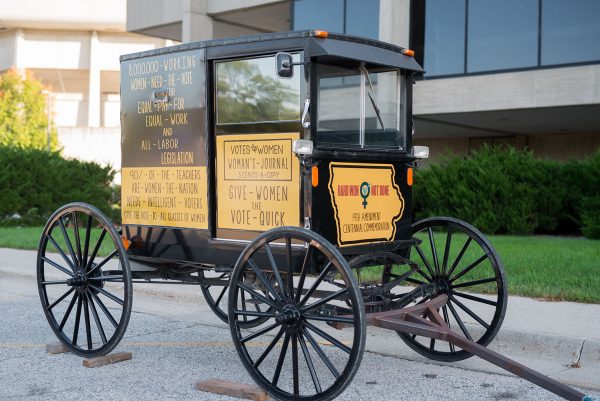
The exhibit “Toward a Universal Suffrage: African American Women in Iowa and the Vote for All” was also featured at the event. A collaboration between the Iowa Department of Human Rights’ Office on the Status of Women, the Central Iowa Community Museum and the Catt Center, the exhibit is available for display at other organizations and events around the state. The exhibit schedule and a portal to request hosting the exhibit can be found on the Central Iowa Community Museum website.
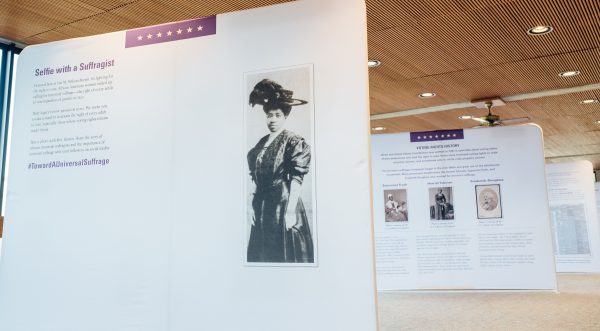
The event was co-sponsored by the 19th Amendment Centennial Commemoration Committee and the ISU Committee on Lectures.
The next week, the center hosted the Iowa State Conference on Civility and Deliberative Democracy. On Oct. 12, Jon Carson of Trajectory Energy Partners presented “Energy Democracy – Driving Clean Energy Through Local Action” in the Great Hall of the Memorial Union, an event co-sponsored by the Committee on Lectures.
In his presentation, Carson addressed the energy transition occurring in the United States and how individuals at the local level are debating the issues and making decisions about where their energy comes from.
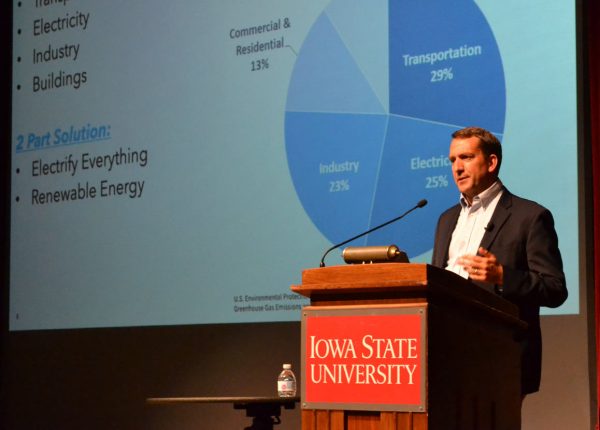
“This is not going to be debated in the United States Senate. This is not even actually going to happen in statehouses,” Carson said. “These decisions, on a project-by-project basis, are going to happen in city council chambers. They’re going to happen primarily in rural county boards.”
Carson also said that although energy is often a nonpartisan issue, discussions about local energy policy don’t always go smoothly. He urged students to get involved in the decision-making process in their communities, as well as in the development of the energy technology of the future.
“Many of these debates are very contentious because at the end of the day, what we’re talking about is, in reality, a very significant change to these communities.”
The next evening, 31 students participated in moderated, small-group discussions about U.S. energy issues. Using materials provided by the National Issues Forum Institute that encourage participation by everyone, the students considered three options for what to do about America’s energy future.
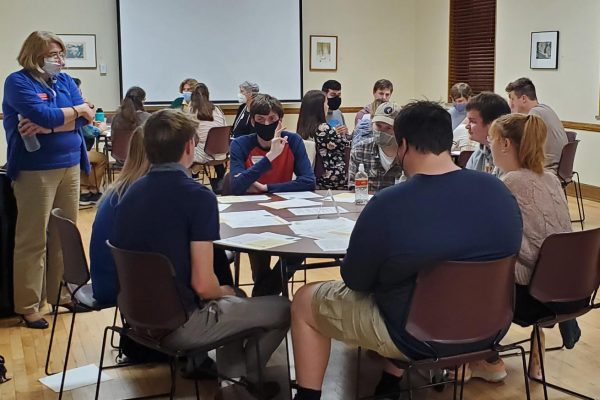
At the end of the discussion period, a spokesperson from each group shared the choice their group made and the rationale behind their decisions. The students also completed a questionnaire to share their thoughts with the NIFI and the North American Association for Environmental Education.
On Oct. 28, the Department of Political Science, the Catt Center and the Committee on Lectures hosted former Republican National Committee chair and popular podcast host Michael Steele for the 18th annual Manatt-Phelps Lecture in Political Science. Steele presented “Trumpism and the Republican Party: What’s Next?” in the Great Hall.
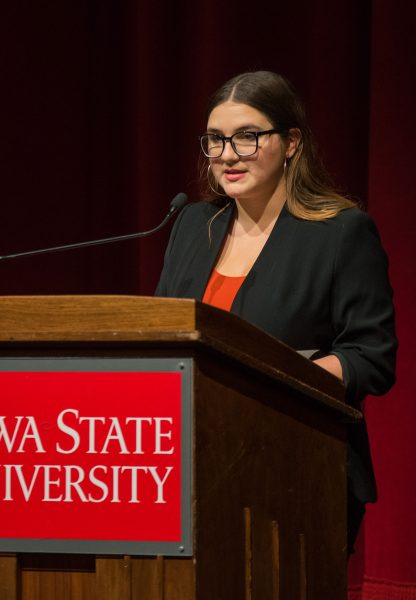
Steele was introduced by Natalia Rios Martinez, a senior in political science, international studies and public relations and the 2021-2022 Kedrowski and Fitzgerald Family Legacy of Heroines scholar.
In his presentation, Steele discussed changes in the Republican Party in recent years and how Republicans are now faced with re-aligning the party with the values and principles for which it previously stood. Quoting Dr. Martin Luther King, Jr. – “Our lives begin to end the day we become silent about things that matter” – Steele asked the audience to consider what matters to them as Americans.
“We’ve watched over some time now as our country is reshaped, re-imagined into something distorted and ugly,” said Steele. “And I think for us, this is a time where we have to decide that that matters enough for us to make a difference, that it matters enough for us to stand and say, ‘Enough.’”
He urged the audience to engage with each other and debate the issues facing the country such as taxes, the environment and healthcare, and to work for a nation centered on core democratic principles, including pluralism, civic responsibility and upholding the rule of law.
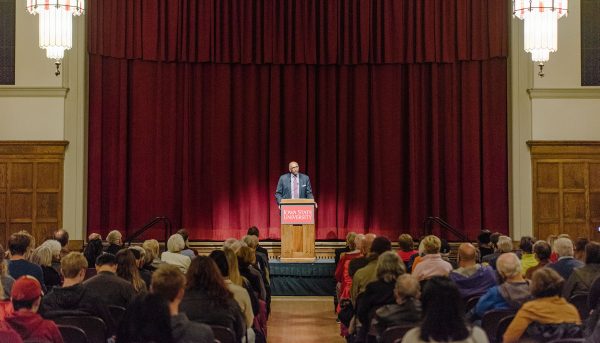
Recordings of the lectures by Spruill, Carson and Steele are available on the Lectures Program website for viewers with an Iowa State login.